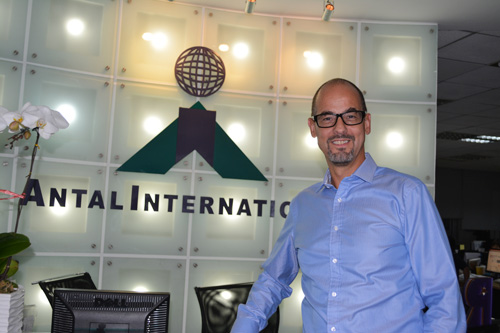|
 |
|
Tony Goodwin, Founder and CEO of the London-based headhunter Antal International (FILE) |
The Chinese job market remains quite upbeat, despite the current economic slowdown, according to a senior manager from a global headhunter company.
"There are still more opportunities in China's job market than any other countries internationally, although the country's economy has slowed down," Tony Goodwin, Founder and CEO of the London-based headhunter Antal International, told Beijing Review in an exclusive interview in September in Beijing.
The Chinese job market continues to perform well, with a 75 percent of Chinese employers currently hiring senior level managers in the third quarter of 2013, according to The Global Snapshot, Antal's report based on a quarterly survey of global hiring and firing trends.
China's job market has changed markedly since Antal entered the Chinese market in 1998, when the firm dealt mostly with multinational companies. Now, 60 percents of its clients are Chinese, including from state-owned enterprises.
"The market has matured in a more professional way in the past 15 years, with a much bigger and deeper middle class of professionals," said Goodwin. "It's become a lot more westernized. When we first started, people didn't want to change jobs so quickly. And now people see it as part of their career development to stay somewhere for two years or three years and move.
Goodwin has some advice to university graduates, who have a hard time finding decent employment in China's fiercely competitive job market.
"The problem with higher education is that we give graduates an expectation of good work. But it's not always like that," he noted. "You have to prove yourself, beyond your education. You must have the capability and a more humble attitude. Good jobs should not be expected. Good jobs should be earned. University graduates should learn to sell themselves and learn to understand entrepreneurism and commercial creativity."
Antal International is a global executive recruitment organization with 110-plus offices in 35 countries. The company currently has offices in three Chinese cities—Beijing, Shanghai and Hong Kong—and plans to expand to 10 to 15 Chinese cities next year, including Hangzhou, Dalian, Shenzhen, Chongqing, Chengdu, Tianjin and Guangzhou. | 